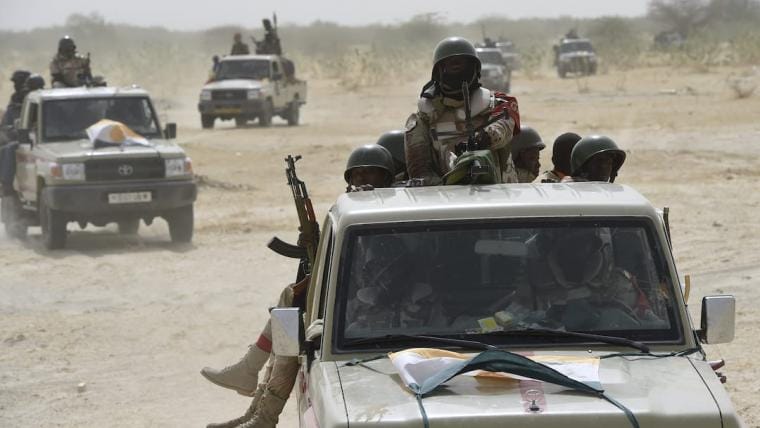What’s new? Lake Chad basin countries – Cameroon, Chad, Niger and Nigeria – have made welcome efforts to coordinate against Boko Haram militants through a Multinational Joint Task Force (MNJTF). But their inconsistent commitment to the force, funding problems and disjointed planning have hindered its effectiveness. Jihadists often regroup when troops withdraw.
Why does it matter? A good strategy for tackling the various Boko Haram factions around Lake Chad depends not only on military operations but also on the four countries’ ability to improve conditions for and gain trust among local populations. That said, a more effective joint force can contribute to such an approach.
What should be done? Lake Chad states resist fully integrating their forces into the MNJTF, but they can still boost its capacity by better sharing plans and intelligence, committing troops for longer operations and improving troops’ human rights compliance. They should work with the African Union and European Union to resolve funding issues.
Executive Summary
The Multinational Joint Task Force (MNJTF) is an effort by the Lake Chad basin states – Cameroon, Chad, Niger and Nigeria – to pool resources against jihadists that threaten all four countries. The joint force has carried out periodic operations, often involving troops from one country fighting in the country next door. Offensives have won victories and helped instil an esprit de corps among participating troops. But nimble militant factions have regrouped fast, and the MNJTF’s effectiveness has suffered from confusion over priorities, the four states’ reluctance to cede command to the force itself, and funding and procurement delays. A successful response to militancy in Lake Chad will depend not only on the joint force but also on whether states can improve conditions for and inspire more trust among residents of affected areas. But an improved MNJTF could help such a strategy. Lake Chad states should boost its planning and communications capacity, intelligence sharing, human rights compliance and civil-military coordination. They should then reach consensus with donors on financing.
The Lake Chad countries, plus Benin, created the MNJTF in its current form in late 2014 and early 2015. Together they committed just over 8,000 troops to the joint force. The African Union authorised the force on 3 March 2015 and envisaged that a sub-regional body, the Lake Chad Basin Commission (LCBC), would assume civilian oversight. The MNJTF established a critically important multilateral framework to combat Boko Haram insurgents, more and more of whom were launching attacks across borders.
The joint force has brought some dividends. Working together has enabled forces from different countries to learn from each other, promoted the idea of cross-border cooperation and improved tactical coordination. Joint operations, mainly involving Chadian troops deploying into the other countries, helped stem Boko Haram’s spread in 2015 and 2016 and squeezed the group, resulting in its split into at least three factions. Short MNJTF offensives in 2017 and 2018, along with a more sustained operation in 2019, also reversed militant gains, freed civilians captured by them or trapped in areas Boko Haram controlled and facilitated the delivery of humanitarian aid.
